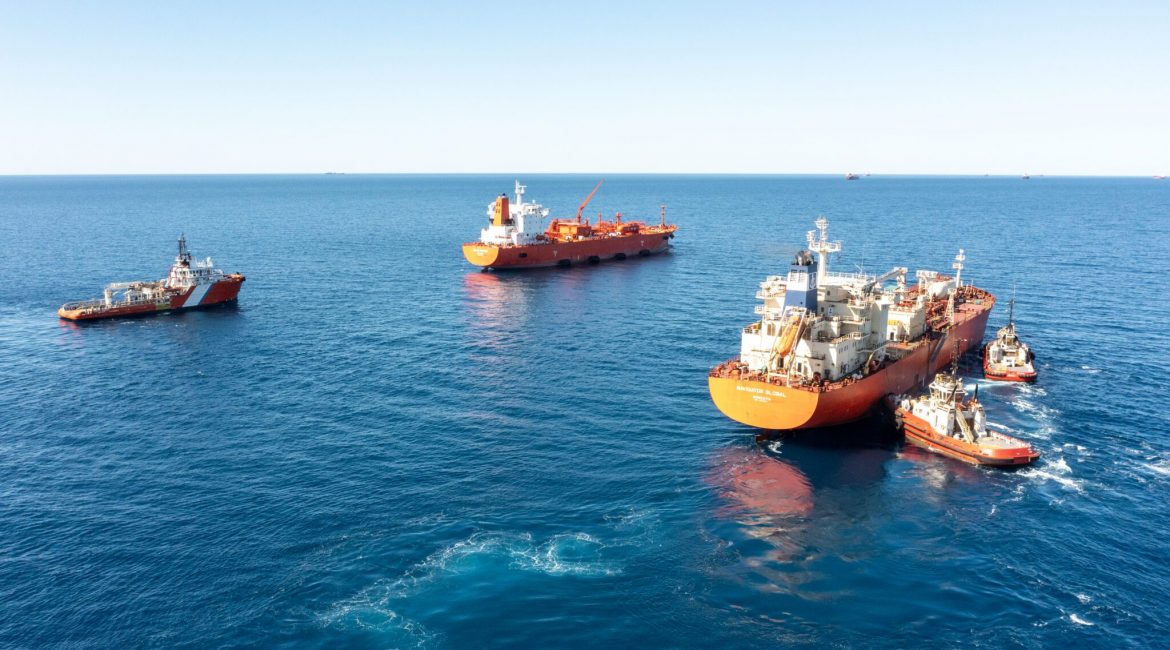A consortium led by the Global Centre for Maritime Decarbonisation (GCMD) has successfully conducted ship-to-ship transfers of ammonia at the Port of Dampier, Western Australia.
The pilot operation, taking place this past Saturday, involved two transfers between the Green Pioneer and Navigator Global, two ammonia carriers with capacities of 35,000 and 22,500 cubic meters respectively. Each transfer, involving 4,000 cubic meters (about 2,700 tonnes) of ammonia, took approximately six hours to complete.
“This pilot marks a crucial step towards readying the ecosystem for using ammonia as a marine fuel, paving the way for eventual bunkering when ammonia-fuelled vessels become available,” said Professor Lynn Loo, CEO of GCMD.
The successful transfers demonstrate the operational viability of future ammonia bunkering in the Pilbara region, which could become a low-greenhouse gas emission ammonia bunkering hub. The initiative aligns with projections that international iron ore trade could require 1 to 1.5 million tonnes of ammonia by 2035.
Extensive safety measures were implemented, including emergency release couplings, shutdown devices, and purging procedures. Comprehensive risk assessments and emergency response plans were developed in collaboration with various stakeholders and government agencies.
As the maritime industry seeks to reduce its carbon footprint, this pilot provides valuable insights for future ammonia bunkering operations.
The GCMD plans to leverage this experience to assess the feasibility of ammonia transfer in other ports, preparing for a future where ammonia could play a crucial role in marine fuel.
By gCaptain


